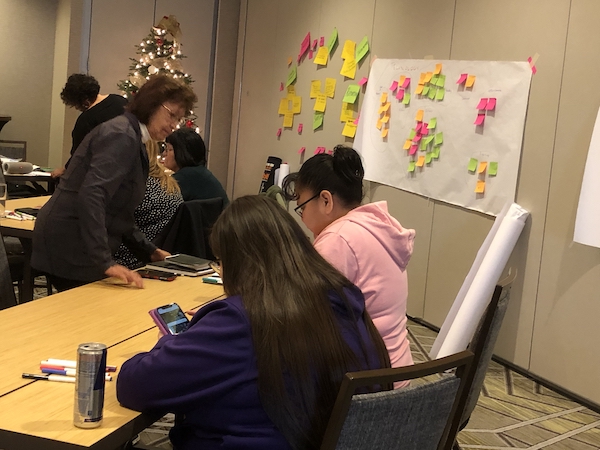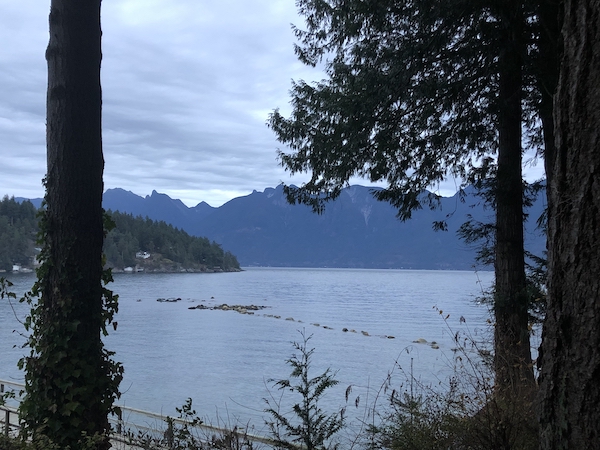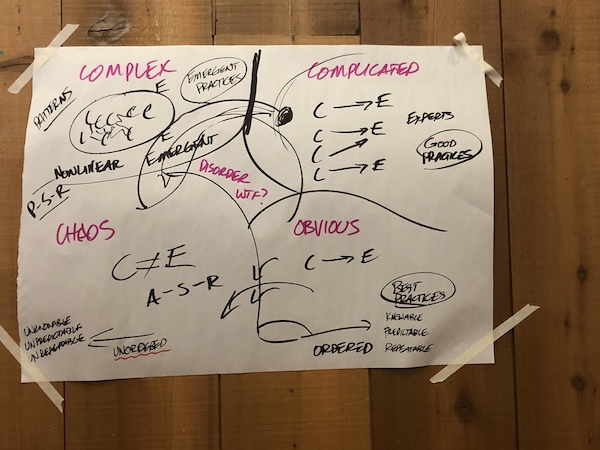It has been thirty years since 14 women were killed at the Ecole Polytechnique in Montreal, and every year I mark their passing here. I’ve always associated this song with that event, and I’ve even asked Lynn Miles about it, and she has said to me, despite her introduction in the above video, “yeah, I guess it’s also about that.” And let’s remember their names and what they were studying or working on that day because they were our peers and their deaths marked a whole generation of us. Geneviève Bergeron, 21, was a second year scholarship student in civil …
Share:

One of my mantras that helps keep me focused when I’m designing a process is “I’m not planning a meeting, I’m planning a harvest.” This helps me focus on need and purpose and helps me choose or create processes that make good use of our time together. Facilitators can be guilty of the sin of falling in love with their methods and tools. Especially when we learn a new thing, we are desperate to try it out, sharing our zeal for this fresh thing we’ve discovered. In my own experience, many times that results in the meeting being about my …
Share:

We’ve just completed our 17th annual Art of Hosting here on Bowen Island. For 17 years I have welcomed nearly 1000 people to our home place through more than 50 workshops we have conducted here. I always appreciate seeing the island through the eyes of our visitors. And so, coming fresh off of that experience, I responded today on our community facebook page to a question posed by a long time Islander, Rob Wall: What is “The Bowen Way.” This was my answer. It changes over time and with waves of people who come and go. As a person who …
Share:

It feels like Christmas Eve around here. I am sitting at home on Bowen Island and our house is full of friends and colleagues Amanda Fenton and Kelly Poirier who have now retired to bed. Along with Caitlin, we have completed a long and productive day of planning and design for what will be the 17th annual Art of Hosting on Bowen Island. This evening I am sitting by my fire, finishing a dram of Laphroaig and remembering the first one in 2003 when Toke Moeller and I sat by this same fireplace discussing teaching and learning and what this …
Share:

I travel around many different kinds of organizations. Many of them preach the mantra that goes something like “it’s okay to fail here. Please take risks and try new things!” Unfortunately, when I look around I can’t see much infrastructure in place that allows the work context to be safe enough to fail. An organization needs to build learning and experimentation into its operations, especially if it is required to respond to changing conditions, improvements in services, or new ideas. And so the idea that “we want people to take risks” is promoted, often alongside an exhortation to do so …

